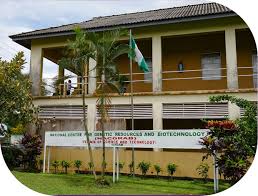The National Centre for Genetic Resources and Biotechnology (NACGRAB) has restated its commitment to the conservation and promotion of Nigeria’s plant genetic resources as a way to support the country’s food security and agricultural development.
This assurance was given by a director at NACGRAB, Mr. Anthony Okere, during the official launch of new crops held at the Genetic Resources Centre building inside the International Institute of Tropical Agriculture (IITA), located in Ibadan, Oyo State. The event was organised in partnership with Crop Trust and the Alliance Bioversity & CIAT, with sponsorship from the governments of Germany and Ireland.
Mr. Okere said Nigeria’s rich plant genetic diversity is the backbone of the country’s future in agriculture. He explained that the newly launched project—under the Power of Diversity Funding Facility (PDFF)—was designed to help Nigeria make better use of its native crops, improve agricultural resilience, and ensure food systems that can withstand the impacts of climate change.
According to him, “NACGRAB remains committed to conserving, characterising, and promoting Nigeria’s plant genetic resources through collaborative and research-based approaches. The PDFF is a symbol of renewed hope for a sustainable agricultural future. Opportunity crops are very important in building food systems that are diverse, climate-smart, and sustainable.”
Speaking on behalf of the Federal Ministry of Agriculture and Food Security, Director Nuhu Kilishi commended the timing of the PDFF launch. He said it aligns well with the government’s plans to improve national food production and increase the strength of crops that can survive in tough environmental conditions.
Mr. Kilishi noted that the crop selection process under the PDFF project will be based on several criteria such as the crop’s advantage in production, its maturity period, and the overall benefit it offers. He added that over 50 crops in Nigeria are seen as viable, with 38 value chains already established and active in the country.
He pledged the full support of the Ministry to scale up crop research and farming efforts beyond the two crops initially selected under the PDFF scheme. Kilishi said this would ensure a wider and more inclusive approach to the transformation of Nigeria’s agriculture sector.
The Project Coordinator of Crop Trust, Mr. Nico Willems-Possen, explained that the Power of Diversity Funding Facility is a five-year initiative aimed at giving more attention to “opportunity crops”—those crops that are often overlooked in major agricultural programs but are rich in nutrients and well adapted to local environments.
He said the funding provided by Germany and Ireland is meant to support a wide range of activities such as research, crop conservation, increasing awareness among consumers, and nutrition education. Mr. Willems-Possen added that one of the main goals of the PDFF project is to work with gene banks like NACGRAB to preserve the genetic make-up of native crops for future generations.
He stressed that the project is designed to contribute to food and nutrition security in Nigeria, while also helping farmers discover and grow resilient crops that can survive under changing climate conditions.
Willems-Possen assured that Crop Trust will continue to work closely with NACGRAB and other stakeholders in Nigeria to support agricultural sustainability through science and research. According to him, long-term food security depends on how well countries can utilise their native genetic resources and improve farming practices.
The crop launch event attracted a wide range of stakeholders, including researchers, plant breeders, policy makers, academics, and other actors in Nigeria’s food and agriculture systems. The gathering also served as a platform for discussions on how Nigeria can tap into underused crops to diversify its food production base, reduce dependence on a few major staples, and build a more resilient agriculture sector.
The PDFF project is expected to introduce modern research tools and innovation into the farming of lesser-known but important crops such as millet, cowpea, bambara nut, and African yam bean—crops that are nutritious, adaptable to harsh climates, and critical for food security in local communities.
